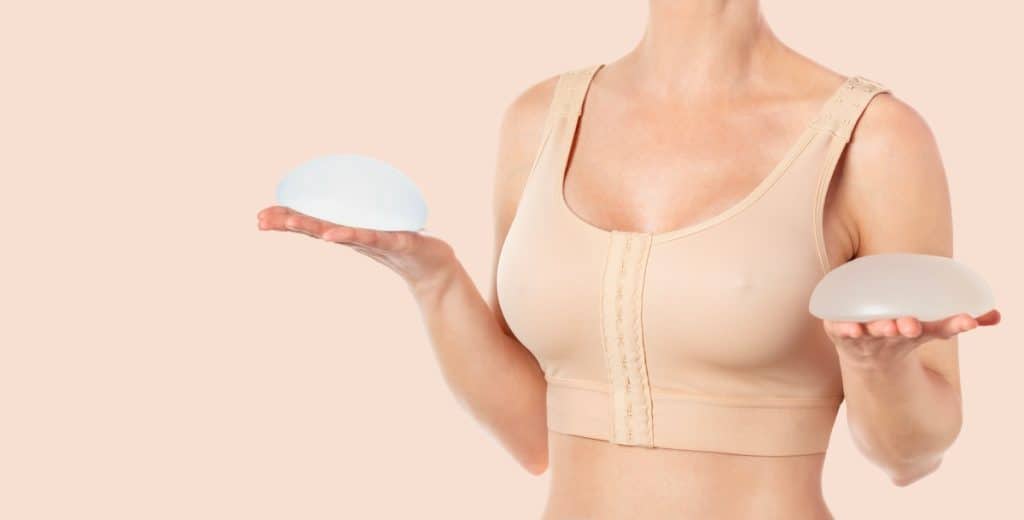Breast Augmentation FAQs & Recovery: What to Expect
Posted By:

Dr. Chris Schaffer
Read Time: ~ minutes

A breast augmentation is more than just a plastic surgery procedure that improves the shape or appearance of the breasts — it’s a powerful procedure that can restore your confidence and give you the boost you need to truly love the way that you look.
Breast augmentation involves utilizing breast implants or fat transfer to improve the size or shape of a woman’s natural breasts. Whether you are looking to increase or decrease the size of your breasts or improve their symmetry, you may find that this is the ideal plastic surgery procedure for you.
FAQs About Breast Augmentation
These are some of the most frequently asked questions that patients have about the breast augmentation procedure:
Will breast augmentation improve my posture?
Breast augmentation surgery may improve a patient’s posture, but not only due to changes in breast size or positioning. Several factors influence a patient’s posture, including body mass and even self-confidence levels. Therefore, the psychological aspects associated with feeling more confident with one’s breasts can play just as much a part in improved posture after surgery. Likewise, other factors can influence the outcome.
Will I be able to breastfeed after my breast augmentation?
If you plan to breastfeed, discuss your plans with your surgeon before choosing procedures and methods used during breast augmentation. Certain types of breast augmentation can affect breastfeeding capability in the future, but many procedures do not.
Which breast implants are best for natural-looking results?
Silicone breast implants tend to have the most realistic look and feel of natural breasts. They are filled with a gel that mimics the structure of natural breast tissue. Form-stable, or “gummy bear” implants, are also a good option for providing a more natural look and feel, even though the silicone gel inside is thick and stable.
Can I still participate in physical activities after surgery?
Absolutely. As long as you wait the required six to eight weeks post-surgery and your surgeon gives you a green light, you are free to return to prior activity levels. However, it will be important to ensure the breasts are adequately supported with a well-designed sports bra.
How long will my breast implants last?
Breast implants don’t come with a set-in-stone expiration date, but they also do not last a lifetime. On average, implants last at least a decade, but some can last 20 years or longer. When implants begin to change shape or position, patients should discuss their options with a qualified surgeon. Some patients opt to simply have a breast implant explant to remove the implants, while others opt for replacement surgery.
Breast Augmentation Recovery in Birmingham, AL
Dr. Christopher Schaffer ensures that all of his patients have realistic expectations of the recovery process. Knowing the stages of breast augmentation recovery in Birmingham, AL, as well as the best ways to manage pain and discomfort, can help you enjoy a smooth and successful recovery.
The Breast Augmentation Recovery Stages
The initial breast augmentation recovery lasts for a few days, with patients experiencing the most pain, discomfort and swelling during this time. Dr. Schaffer will provide you with specific aftercare instructions that allow you to control pain and rest comfortably after your surgery.
Most patients return to work about one or two weeks after the breast augmentation procedure. Most pain and swelling subsides within a week, but patients will have physical activity restrictions for at least four to six weeks.
Sleeping After Your Breast Augmentation
Breast enhancement surgery requires a period of back-sleeping to ensure incisions heal undisturbed and to allow implants an opportunity to settle into positions safely. Back-sleeping after breast enhancement surgery should keep your upper body slightly elevated. This can be achieved with a special wedge pillow or a stack of pillows.
Alternatively, you may be more comfortable sleeping in a recliner. Sleeping in this position after breast enhancement surgery can reduce breast swelling and soreness. It also improves mobility by reducing your use of upper body strength to get out of bed. Additionally, keeping your upper half elevated promotes the healthy growth of scar tissue and supports the body’s natural healing processes.
Pain Management During Breast Augmentation Recovery in Birmingham, AL
The first two to three days following breast augmentation will likely necessitate higher-strength narcotic pain medication and muscle relaxers. This is the period that requires careful attention to your dosage schedule to successfully manage postoperative discomfort.
When taking any pain medication, it is essential to follow all doctor instructions and to avoid taking medication on an empty stomach. The first 72 hours after breast augmentation are when the need for these stronger medications peaks. Most patients can stop using narcotics or strong pain medications within three to seven days following surgery.
Schedule Your Consultation With Dr. Christopher Schaffer Today
Now is the right time to invest in yourself. Through the breast augmentation procedure, you can enjoy a renewed sense of self-confidence and an unparalleled self-esteem boost. Schedule your consultation and learn more about breast augmentation recovery in Birmingham, AL, today.
Gallery
View Gallery

